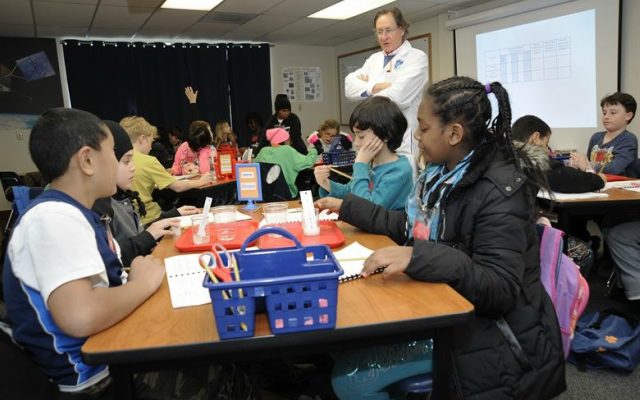Portland Teachers Strike Continues, No School Until At Least Monday

Portland, Ore. — Portland Public Schools confirmed Wednesday afternoon that due to the ongoing historic teachers strike, all schools within the district will remain closed at least until the weekend. This closure will cause a delay in the issuance of report cards, as officials have stated.
The strike was announced by the Portland Association of Teachers on Tuesday night, following unsuccessful eleventh-hour negotiations with the district. The walkout led to the closure of the district’s 81 schools, impacting approximately 45,000 students.
Teachers initiated picket lines around Portland schools on Wednesday, advocating for better pay, reduced class sizes, and increased preparation time, among other key demands.
Portland Public Schools informed families to expect updates via text and email at 7 p.m. each night regarding whether classes will resume the following day. With no bargaining sessions scheduled for Wednesday, the district confirmed early on that schools will remain closed through Thursday. Additionally, as Friday was previously designated as a planning day for teachers, the closure will persist at least until the end of the week.
In an effort to address the impasse, Superintendent Guadalupe Guerrero and the district’s bargaining team presented statements from Governor Tina Kotek and the Portland Metro Chamber of Commerce, urging both parties to continue negotiations to avoid the strike. However, the Portland Association of Teachers countered, stating that the district failed to take their demands seriously, resulting in unproductive negotiations.
Guerrero, in a press conference on Wednesday, reiterated the district’s longstanding assertion that the state’s funding inadequacies hinder their ability to meet the union’s demands for a higher-quality education. He pointed out the disparity between the district’s increased revenue and the insufficient funding received from the state since 2020.
Addressing the teachers’ demands, Guerrero expressed the district’s concerns over the substantial increase in spending proposed by the teachers’ union, citing potential adverse impacts on the workforce, class sizes, and student services.
Amidst the strike, the Portland Association of Teachers held a spirited rally outside Roosevelt High School, demanding a budget reallocation from the central office to schools and the restoration of special education positions and classroom educators.
The rally attracted Becky Pringle, president of the National Education Association, who emphasized the significance of the strike in Portland, highlighting the teachers’ collective efforts nationwide for better resources, smaller class sizes, and fair treatment to ensure a quality education.
The ongoing strike has drawn attention both locally and nationally, showcasing educators’ determination to advocate for improved resources, better working conditions, and a quality educational experience for students in Portland.



